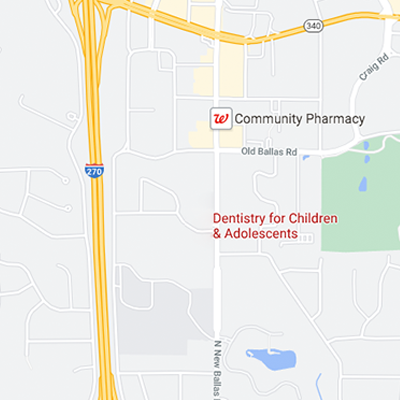One of the most discussed issues for parents of young children is whether to let their child use a pacifier or their thumb.
 Babies have a natural reflex called non-nutritive sucking, which means they will suck on a thumb or pacifier for pleasure, security and comfort and not just when they are hungry.
Babies have a natural reflex called non-nutritive sucking, which means they will suck on a thumb or pacifier for pleasure, security and comfort and not just when they are hungry.
So which one is the better choice? Here are some helpful facts and tips to assist parents in making this decision!
Pacifier
The American Academy of Pediatric Dentistry recommends the use of pacifiers over thumbs when comforting new babies because the pacifier habit is easier to break at an earlier age. The longer the sucking habit continues the greater the chance for future orthodontic issues.

Tips for Safe Use
- The pacifier’s shield should be wider than the child’s mouth. Stop using the pacifier if the entire thing can fit into a child’s mouth.
- Don’t dip the pacifier into anything sweet before giving it to a baby.
- Inspect pacifiers routinely for signs of deterioration and discard if the bulb becomes sticky, swollen or cracked.
- Don’t attach a pacifier to a crib or their body with a string, ribbon or cord.
- Don’t leave a baby unattended with a pacifier in his or her mouth, including sleeping.
Thumb
In general, thumb or pacifier sucking can affect teeth essentially in the same way. An argument for thumb or finger sucking over pacifier use is it can teach children to sooth themselves.
It might depend on which option an individual child prefers. Both sucking on a thumb or pacifier are typically stopped by the child but should be discouraged after age 3 to avoid future problems.
Possible Effects
If a child repeatedly sucks on a finger or other object for a long period of time, the upper front teeth may jut out or not come in properly. Prolonged sucking can create crooked teeth, bite problems and other changes in their tooth position and jaw alignment.
Your pediatric dentist can assist you with methods and ideas to help your child stop sucking on a thumb or pacifier. The professionals will encourage a child to stop the sucking habit, discuss what can happen to teeth and recommend behavior modification techniques.
At Dentistry for Children and Adolescents, we will work with your family’s unique dental needs to ensure every child is happy and healthy.



